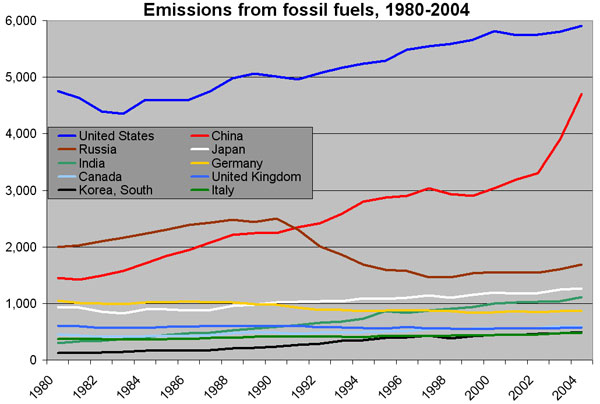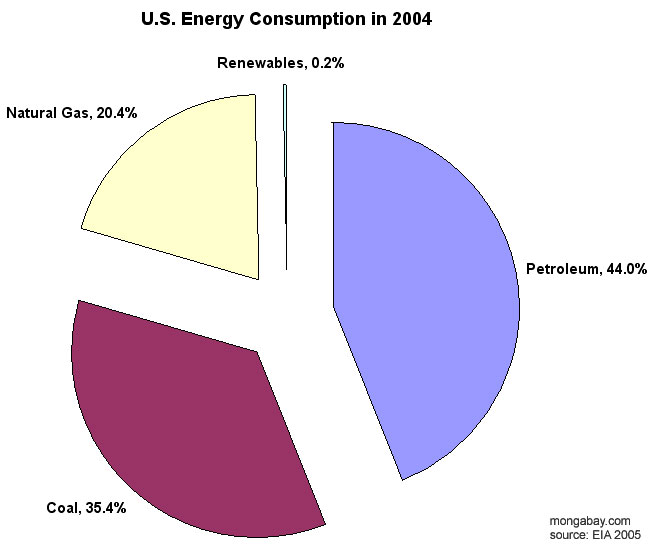Not even intense international pressure, the BP oil spill, worsening floods, or the fact that the last six months have been the warmest on record globally was enough to push US climate legislation through the Senate. In the end the legislation died without a single Republican supporting it and a number of Democrats balking. Democratic Senate leader, Harry Reid, said they would continue to push climate legislation in the fall, but analysts say success then is unlikely given up-coming elections in November.
Until recently the US was the number one emitter greenhouse emissions worldwide: today it is China with the US coming in second. In 2007, carbon emission in the US rose to 5,838 million metric tons, nearly 20 percent of the global total, yet the US population represents approximately 4.5 percent of the world total.
US consumption of oil, however, remains the highest in the world: in 2007 the US consumed 20,680,000 barrels (868,500,000 gallons) of oil every day, or approximately 7.5 billion barrels (or 337.5 billon gallons) of during the full year.
Climate change legislation has long faced a difficult road in the US given some measure of public skepticism, most Republicans unwilling to consider greenhouse gas regulations, and corporate lobbying from fossil fuel industries.
Power to deal with greenhouse gas emissions now moves to the Environmental Protection Agency (EPA) under the Clean Air Act, but it remains to be seen how aggressive the EPA will be toward lowering the US’s emissions.


Related articles
Coral reefs doomed by climate change

(07/22/2010) The world’s coral reefs are in great danger from dual threats of rising temperatures and ocean acidification, Charlie Veron, Former Chief Scientist of the Australian Institute of Marine Science, told scientists attending the Association for Tropical Biology and Conservation meeting in Sanur, Bali. Tracing the geological history of coral reefs over hundreds of millions of years, Veron said reefs lead a boom-and-bust existence, which appears to be correlated with atmospheric carbon dioxide levels. With CO2 emissions rising sharply from human activities, reefs—which are home to perhaps a quarter of marine species and provide critical protection for coastlines—are poised for a ‘bust’ on a scale unlike anything seen in tens of millions of years.
June was the 304th month in a row above average temperatures
(07/20/2010) Data released from the US’s National Oceanic and Atmospheric Administration (NOAA) and the National Climatic Data Center shows that June 2010 was a record breaker. It was the warmest month of June globally since record-taking began in 1880 and it is the 304th month in a row that has been above the 20th Century average. The last month to fall below the average was February 1985: the month Nelson Mandela, who recently celebrated his 92nd birthday, rejected an offer of freedom from the then apartheid government.
Arctic ice hits lowest record for June
(07/14/2010) In June the average sea ice extent in the Arctic was the lowest on record for that month, according to the National Snow and Ice Data Center (NSIDC). Measured by satellites, the seasonal movements of Arctic ice have been tracked since 1979 with a dramatic decline seen over the last 30 years. This decline is linked by climatologists to climate change.